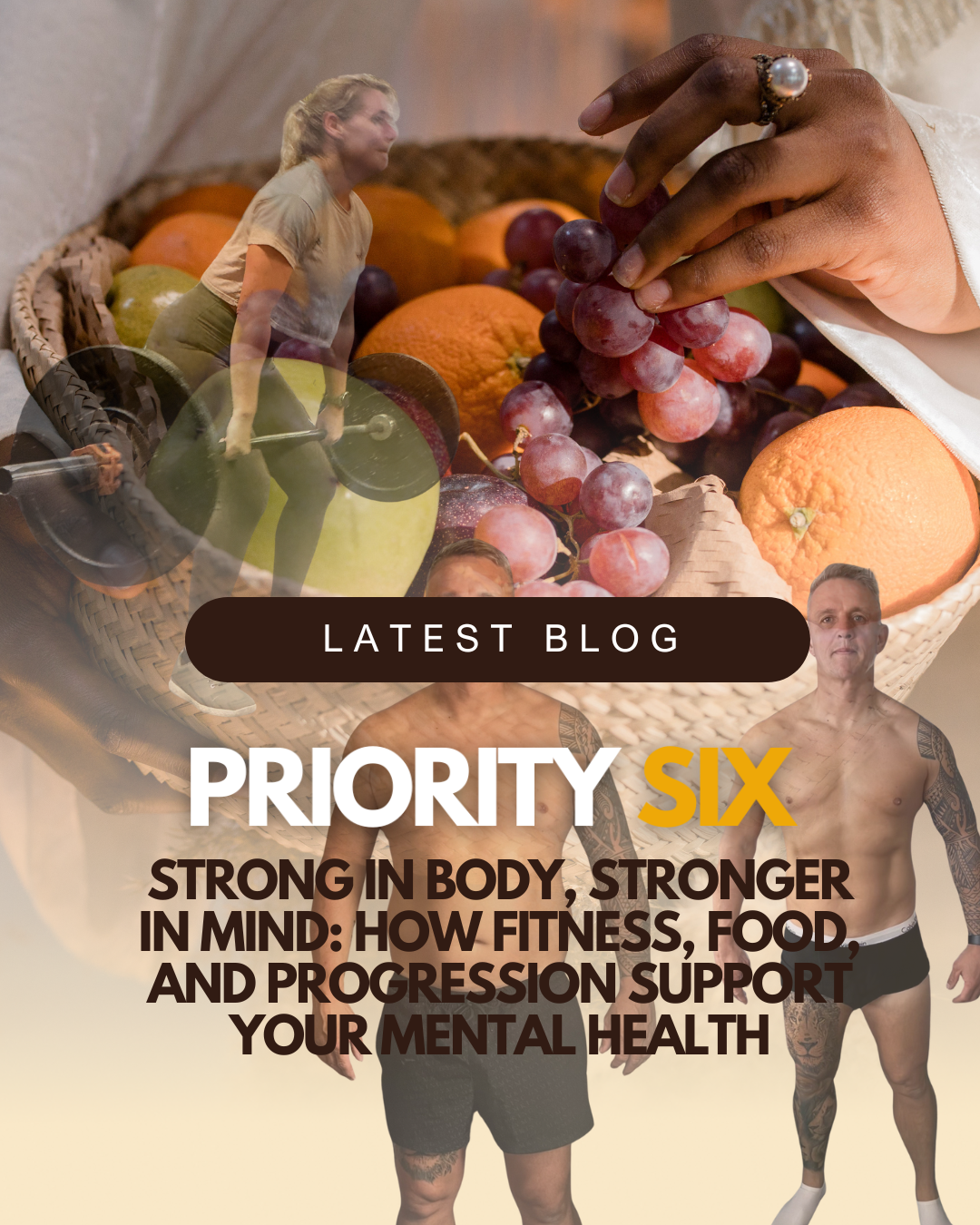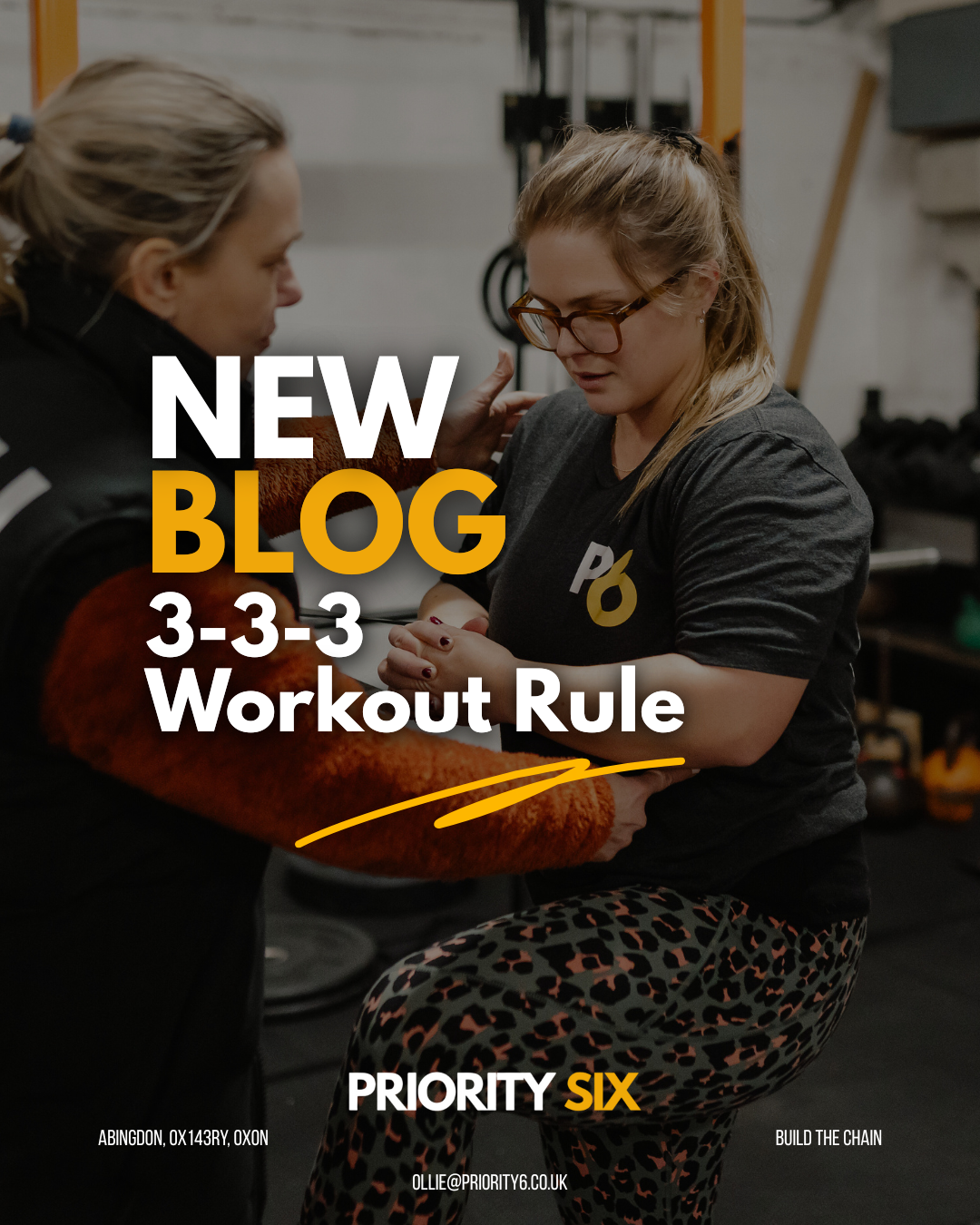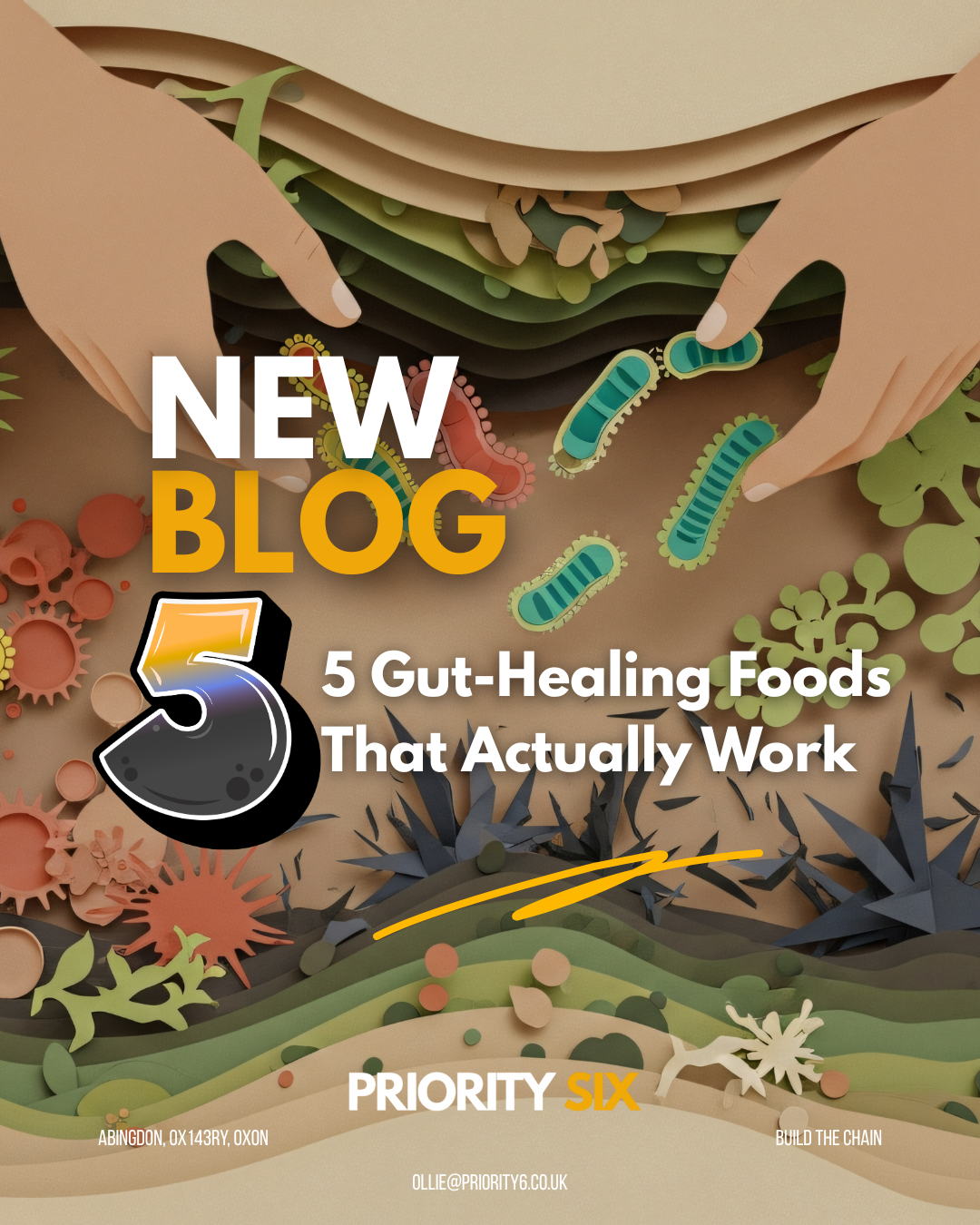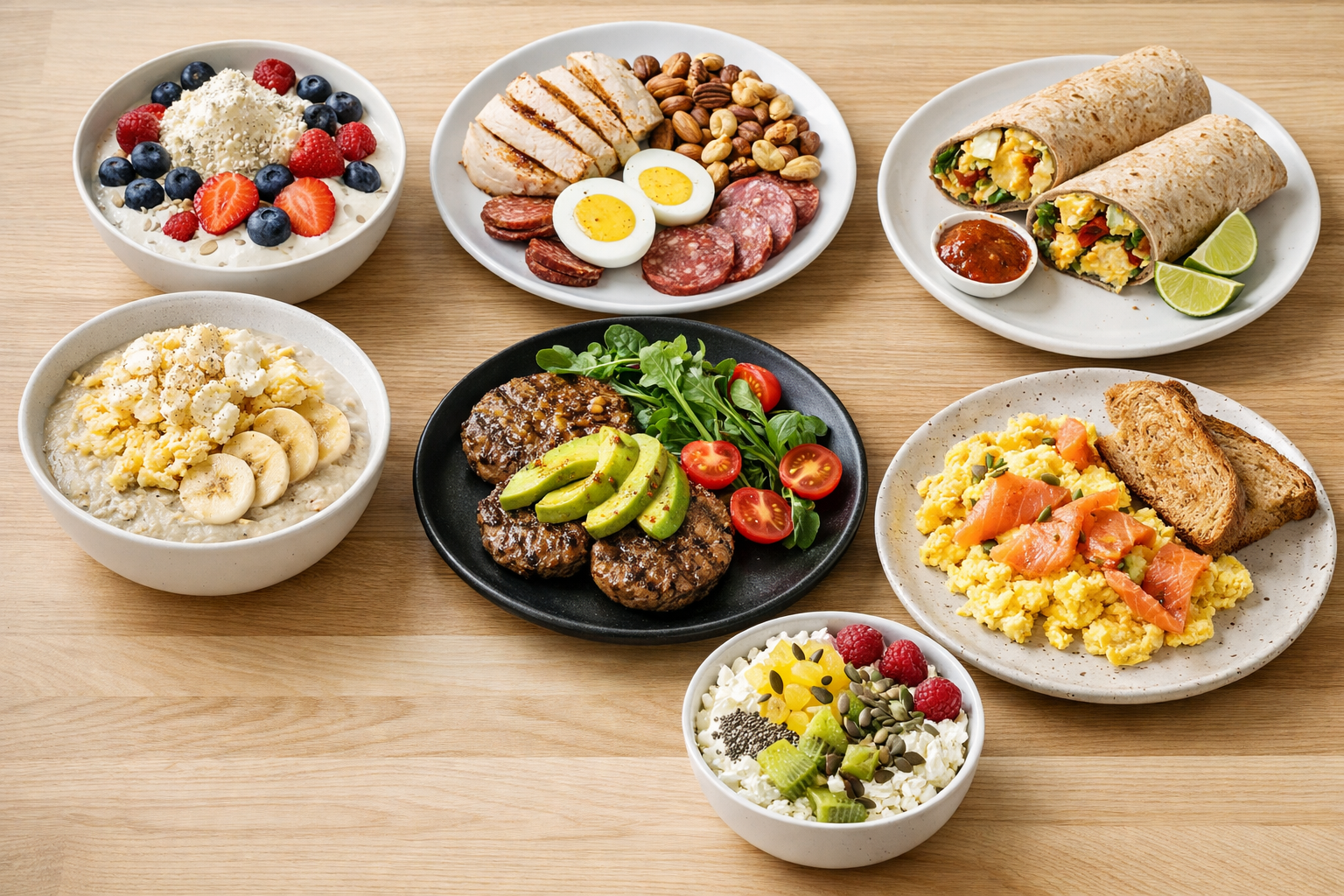

Strong in Body, Stronger in Mind: How Fitness, Food, and Progression Support Your Mental Health
October 10th marked World Mental Health Day, an annual reminder that mental wellbeing is just as vital as physical health. But for many, taking that first step toward change feels like the hardest part. When your mind is heavy, your energy is low, and self-doubt is high, even the idea of showing up to a workout or making a nutritious meal can feel overwhelming.
But here’s the truth we’ve seen time and again: once you start, even if it’s small, positive momentum builds.
Movement fuels clarity.
Nutrition nourishes more than your body.
Progress, no matter how slow, shifts identity. And when combined, these factors can play a powerful role in improving mental wellbeing.
This blog explores how three core pillars, exercise, nutrition, and structured progression, can support your mental health. Whether you're struggling with anxiety, low mood, stress or simply feeling stuck, you’ll find evidence-backed strategies that work.
Part 1: Exercise as Therapy… Moving the Mind
Regular exercise is now widely accepted as a proven strategy for improving mental health. According to research published in The Lancet Psychiatry journal (Chekroud et al., 2018), individuals who exercised had 43% fewer poor mental health days per month compared to those who didn’t.
So, what makes movement so powerful?
- Exercise boosts endorphins and serotonin, the brain's feel-good chemicals.
- It reduces cortisol, the primary stress hormone.
- It improves sleep, focus, and emotional regulation.
- It offers a sense of control and achievement, even in unpredictable times.
At Priority 6, we often say that training is less about your body and more about changing how you feel in your skin. It’s not about aesthetics, aesthetics is the byproduct of the habits you adopt.
What type of movement is best?
The one you can stick to.
If you’re starting from a place of low mood or anxiety, aim for:
- 2–3 strength sessions per week (preferably coached, for guidance and connection after all mental health issues hide away)
- Low-impact cardio like walking, cycling, or rowing
- Stretching or mobility work to reconnect body and mind
- Group-based training to build social connection and accountability.
Even a 10-minute daily walk can start the shift.
Food and Mood… The Brain-Gut Connection
It’s often said the gut is the “second brain”, and science backs that up. About 90% of serotonin (a neurotransmitter responsible for mood regulation) is produced in the gut, not the brain. Your gut and brain are connected via the vagus nerve and constantly communicate.
That means your mental health is deeply influenced by what you eat.
A diet high in processed food, sugar, seed oils, and ultra-processed snacks can increase inflammation and disrupt gut microbiota, both of which are linked to depression and anxiety.
On the other hand, a nutrient-dense diet can support cognitive function, reduce stress, and stabilise energy and mood.
Key nutrients for brain health:
- Omega-3 fatty acids (found in oily fish, flaxseed, and walnuts): reduce inflammation and support brain cell structure.
- Magnesium (leafy greens, dark chocolate, pumpkin seeds): calms the nervous system and aids sleep
- B-vitamins (meat, eggs, legumes): essential for mood regulation and cognitive clarity
- Fermented foods (yoghurt, kefir, sauerkraut): support gut microbiome diversity
- Protein (chicken, tofu, lentils): provides amino acids for neurotransmitter production
- Water: dehydration can mimic symptoms of anxiety, fatigue and low mood
Supplements that may support mental health:
- Fish oil (for EPA/DHA)
- Vitamin D (especially in UK winters)
- Probiotic blends (aimed at gut-brain support)
- Magnesium glycinate (for stress and sleep)
Remember, nourishment isn’t just fuel, it’s a form of self-care. Choosing to eat well isn’t restriction, it’s restoration.
Progression Builds Confidence… Confidence Changes Everything
One of the most transformative aspects of strength training is how it redefines your identity. You go from “I can’t” to “I did.” From doubting yourself to showing up again, even when it’s hard.
This process builds something more powerful than willpower: self-trust.
At our gym, we use structured programmes with progressive overload. That means each week, your training evolves. You get stronger, more capable, more in tune with your body. And this doesn’t just improve your squat or push-up, it impacts how you handle life.
People who strength train consistently report:
- Improved self-esteem
- Reduced symptoms of depression
- Higher stress resilience
- A greater sense of control and purpose
You don’t need to chase PBs every session. Simply seeing improvement, more reps, better form, increased stamina, is a reminder that change is happening.
And when you feel progress in your body, your brain believes in progress in life.
Mental Health Isn’t About Perfection, It’s About Momentum.
There’s no quick fix for mental health. But there are tools, proven ones, that you can use to take back some control.
Fitness. Food. Progress.
These aren’t vanity projects, they’re anchors.
If you’re struggling right now, know this: you don’t have to do it all, and you don’t have to do it alone. Start with one session a week. One better meal. One walk in the fresh air. And then build.
Because sometimes, lifting weights isn’t about building muscle, it’s about lifting the weight off your mind.
If you're ready to start, we’re ready to support you.
Explore our group coaching options, Hyrox-style sessions, or 1:1 goal reviews to build a plan that’s right for you.
You can also join our private community: Oxfordshire Fat Loss with OC, https://www.facebook.com/groups/468393083827428/
Every 90s somone takes their own life, nawadays the sad fact is we all know someone that has taken that option, we provide a place where, althought we’re busy, the door is ALWAYS open. Say those words “could i have a moment, I need some help’, we’ll know what you mean. We can shut the door and listen, we may not have an answer but we’ll know who can help, and we’ll always listen.
Hope this struck a chord, I hope it offered advice and help, reach out if you need more!
OC and Team P6





